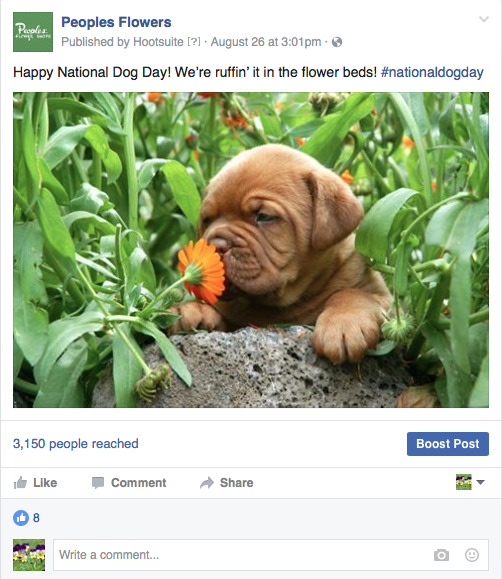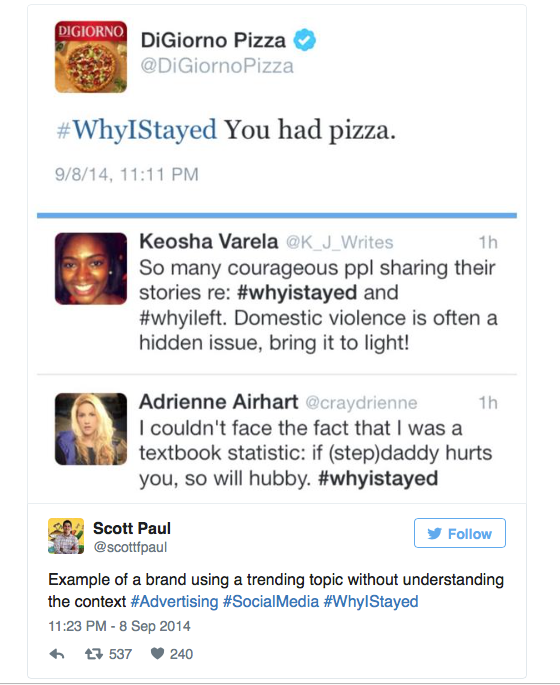Using Hashtags
If you are asking that question when it comes to your social media strategies, then I have a question for you. Why shouldn’t you use hashtags? When you boil it down, hashtags are free advertising. They are a tool used for searching and sorting and if used correctly, they can only help your social media. They’re an easy way to widen your reach and help your followers discover new content as well, benefitting you both and keeping your followers engaged and loyal. Not to mention the fact that social media users love hashtags. They’re everywhere. So if you see a commonly used hashtag that is relevant to your brand, use it! If someone is searching that term it is possible that they will come across your content and you will have just gained a new follower, customer, or even made a sale.
Best Practices
So you’ve decided to give hashtags a try. Now what? Do you put them in the #middle of your sentence? Do you put them at the end? #IsHereAGoodSpot? How many do you use? These are all great questions. Unfortunately, there is no easy answer, #sorrynotsorry, because it completely depends on which social media platform you are using, who your audience is, and what the goal of your post is. But I can give you some general tips that will help you along your way.
Use already popular hashtags that are relevant to your content.
Using trending hashtags can help you jump on a conversation that has already started. Some ones I use often are #TipTuesday, #WeddingWednesday, and #FunFlowerFriday. Other ones would be keywords that are popular and relevant at the time, so anything related to holidays or the season. #fallflowers, #MerryChristmas, #BeMyValentine, #nationaldogday etc.

Be careful of jumping onto trends that have nothing to do with your brand. You can jeopardize your rankings and alienate your followers. And if you are not completely familiar with the meaning behind a hashtag and use it incorrectly, you can really anger or offend people. DiGiorno Pizza did this a few years ago when they used the hashtag #WhyIStayed, which was currently trending. They, however, did not realize this hashtag was started to raise awareness about domestic abuse. It was a social nightmare for DiGiorno.

The opposite is true if you want to brand your own hashtag. When creating a personalized hashtag, relevant to your specific brand, you need to make sure it’s unique. There are lots of different tools out there that can help you monitor and analyze your hashtag to see who is clicking on it, sharing it, etc. Some popular tools are talkwalker.com, hashtagify.me, and hashtags.org.
Currently Twitter has a character limit of 140, which makes deciding which hashtags to use pretty easy. Narrow it down to 2 or 3, making sure you are leaving room for any other content or links you might be using.
Instagram is a hashtag lovers dream because you can use up to 30 tags on each post. #gocrazy #befree
Pinterest warns people against using too many hashtags, so I narrow it down to 2 or 3, and make sure they are relevant to what you are describing. According to Pinterest, “having too many of them (hashtags) in your descriptions may negatively impact your ranking.” I tend to err on the side of caution when it comes to Pinterest over any other social network.
Hashtags are a relatively new thing on Facebook, and the verdict is divided on whether or not they actually have an impact on your reach or engagement. I know that in my personal experience I have posted the exact same post, one containing hashtags and one not, and the post containing hashtags has performed better. I like to keep the posts clean, so I will generally hashtag a keyword in the middle of a sentence, and then add any other relative terms at the end, if I feel that they are necessary. I try not to use more than 2 or 3 on Facebook, because this is a platform where overuse can be harmful, just like Pinterest.
#InConclusion
Always remember that social media is an art, not a science. Test a couple of different things out and see what works best. What works in one market doesn’t always work in another. And if all else fails, #keepitsimple.
